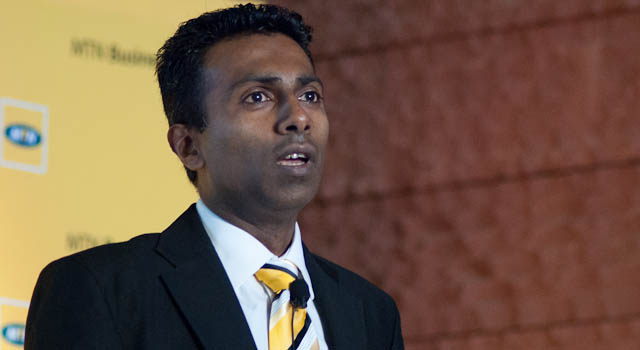
Johannesburg, Pretoria and Durban will be the first to get access to MTN’s commercial fourth-generation (4G) network but Cape Town will not get access to the network, at least at first, because of a lack of available spectrum in the Mother City.
MTN SA chief technology officer Kanagaratnam Lambotharan says the company is on track to launch commercial 4G services based on long-term evolution (LTE) technology by the end of the year.
Kanagaratnam says MTN will have between 400 and 500 base stations equipped with LTE radio equipment by the end of 2012, up from about 250 now. The plan is to cover parts of Johannesburg, Pretoria and Durban by the time commercial services are switched on.
“We’re looking at Cape Town as well, but there are challenges there with refarming spectrum,” he says.
Because none of SA’s mobile operators has been given access to spectrum for LTE services, MTN is refarming some of its spectrum in the 1800MHz band to cater for the new technology.
In Johannesburg, MTN hopes to provide LTE coverage, at least outdoors, at launch to most areas inside the ring road that encircles the city.
The investment in LTE forms part of more than R5bn MTN is spending on its network in SA this year. This includes aggressive investment in the company’s 3G network.
So far in 2012, MTN has deployed 696 new 3G sites, with a target of reaching as many as 1 176 by the end of the year. That compares to 598 new 3G base stations in 2011. The company has also deployed a total of 317 3G base stations at 900MHz, a frequency that offers better “propagation” and so is more suited to outlying areas where it doesn’t make financial sense to build dense infrastructure. Parts of KwaZulu-Natal, the Free State, Gauteng, Limpopo and Mpumalanga now have 3G coverage using the 900MHz band.
As part of the focus on 3G and 4G, MTN is stepping up its roll-out of its own fibre infrastructure to connect its base stations. It now has over 1 000 base stations connected to its own fibre. 3G population coverage has reached about 65%, Lambotharan says, adding that the operator wants this to reach between 80% and 85% by the end of 2013. — (c) 2012 NewsCentral Media




